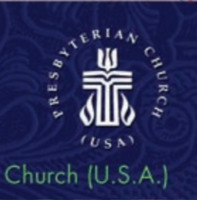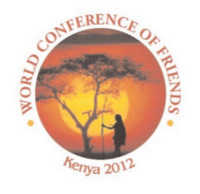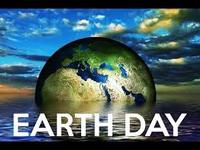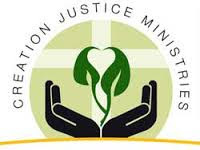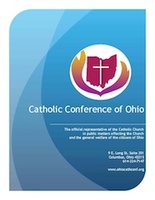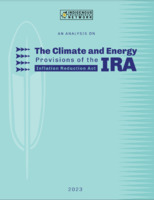Search
37 items
-
Divest and Reinvest Central
GreenFaith has created a list of known religious efforts to divest and reinvest from fossil fuels. The list includes religious groups that have: divested their own funds, committed to never investing in fossil fuels, passed or considered national or local resolutions, focused on reinvestment, or taken divestment or reinvestment on pension funds. -
10 Eco-Mission Projects
Evangelical Environmental Network MOMS has created a list of family oriented service projects that focus on the environment. These ideas not only offer ways to serve the community, but also take care of God’s earth in simple but effective ways. -
Creation Care Hack: Energy Efficiency at Home and Energy Efficient Kits
One of the most effective ways to alleviate the impact of carbon emissions on the planet is to reduce individual energy usage. Evangelical Environmental Network has created a resource guide that provides practical tips and suggestions to decrease energy output. It also includes ways to create energy efficient kits that can be distributed at churches or used as part of a mission project. -
Earth Day statement from ELCA presiding bishop
The Reverend Elizabeth A. Eaton, Presiding Bishop of the Evangelical Lutheran Church in America (ELCA), issued an Earth Day statement on behalf of the ELCA. A salient excerpt from the statement is shown below:
"The effects of the warming climate are felt in nearly every corner of the globe. These include increased migration, food insecurity due to changing agricultural landscapes, national security issues and health problems. As bad as it is for all creation, the most vulnerable people around the world are suffering the most. Yet they have contributed the least and, as noted in the United Nation's 2030 Agenda for Sustainable Development,[iii] are ill equipped to adapt to or mitigate the effects of a changing climate to build resilient communities." -
PC(USA) Collaborative Agenda on Environmental Stewardship
Chief executives of the six churches of the Presbyterian Church (U.S.A.) provide their rationale for creating the Collaborative Agenda on Environmental Stewardship:
"Noting the deep concern about urgent environmental challenges expressed by many commissioners at the 221st General Assembly (2014), chief executives of the six agencies of the Presbyterian Church (U.S.A.) appointed a working group to develop a joint response. The group consisting of at least one staff member per agency—was asked to craft a positive statement of what each agency, and the agencies together, have done and plan to do regarding environmental stewardship. This document is designed to call attention to ongoing efforts by the PC(USA) to confront the underlying causes of climate change, and to resources available through the six agencies to congregations, mid councils, and other mission and ministry groups wishing to join in the effort. The working group, meeting together regularly over a period of nine months, has produced the following document— 'Collaborative Agenda on Environmental Stewardship.' It has been reviewed by each of the agency boards, which have each endorsed the document as a whole and recommended that the General Assembly also endorse it as a helpful resource to the whole denomination. This effort is particularly noteworthy as it is unusual for an item of business to come to the assembly from a collaboration of all six agencies." -
Blessed Tomorrow - Caring for Creation Today - Commitment to Act on Climate Change
The Presbyterian Church acknowledges that burning fossil fuels can cause irreparable damage to the Earth and to humans, with a disproportionate impact on the poor and vulnerable, and advocate instead for cleaner energy sources. They emphasize that care for creation is not a political, economic, or scientific issue, but rather a moral responsibility laid before us by God. For this reason, they are partnering with Blessed Tomorrow, to facilitate the creation of new tools and guides that will help to create a more sustainable future. -
The Power to Change
The 218th General Assembly of the Presbyterian Church U.S.A. (PCUSA) has put forth this resolution on energy and climate change as a resource for both individuals and entire congregations. Topics at the forefront of the report include: global warming, eco-justice norms, energy guidelines, non-renewable energy sources, and alternative and renewable energy sources. The final section includes resources for education, action and advocacy. -
Globalization and the Environment
This study paper by Dr. Robert L. Stivers focuses on various types of attitudes and perspectives regarding human interaction with the environment. He maintains that environmental degradation has multiple causes, of which globalization might only be one factor. Dr. Stivers offers that globalization is a contributor to the extent that affluent individuals from around the world have yet to curb their spending habits and attitudes with regard its negative impact on nature. -
Hazardous Waste, Race, and the Environment
This statement was approved by the 207th General Assembly Presbyterian Church (U.S.A.), 1995. The predominant theme focuses on the impact that hazardous waste has on individuals who are suffering from poverty and minority groups. The final section provides suggestions for taking action. -
A Shared Quaker Statement: Facing the Challenge of Climate Change
This statement calls for leaders to make sound decisions with regard to climate change, and for all people to cherish the Earth for future generations. The following introductory section highlights the sense of urgency:
"As Quakers, we understand anthropogenic climate change (climate change due to human activities) to be a symptom of a greater challenge: how to live sustainable and justly on this Earth.
We recognize that the current rise of greenhouse gas emissions is leading to an unprecedented rate of increase in global average surface temperature of extreme detriment to the Earth’s ecosystems and species, including human beings.
We recognize that catastrophic global climate change is not inevitable if we choose to act urgently." -
A Quaker Response to the Crisis of Climate Change
A Quaker Response to the Crisis of Climate Change discusses how climate change and consumer waste negatively impacts disadvantage populations the most. The first two paragraphs of the introduction are stated below:
"The crisis of global climate change represents a supreme test of humanity’s collective wisdom and courage. Our immoderate use of the Earth’s resources violates the entire biosphere, threatening the lives of millions of people and the habitats of thousands of species. Many of the poorest people are already suffering a changed climate; they are
asking us all to act.
How has humanity produced this crisis? Our faith response is that prevailing social values have obscured what it means to live authentically on this Earth. In rich European countries we consume more than we need within an economic system that divides us as a society; in much that we do, we cause harm to the planet and each other without enriching our lives." -
The Kabarak Call for Peace and Ecojustice
The Kabarak Call for Peace and Ecojustice, at the World Conference of Friends in 2012, maintains that we live in times in which the Earth can not replenish itself, so we must intervene where we can. In addition, we need to look out for our fellow humans, especially those who are less fortunate than us. The following paragraph provides the introduction to the text:
"In past times God’s Creation restored itself. Now humanity dominates, our growing population consuming more resources than nature can replace. We must change, we must become careful stewards of all life. Earthcare unites traditional Quaker testimonies: peace, equality, simplicity, love, integrity, and justice. Jesus said, 'As you have done unto the least… you have done unto me'. We are called to work for the peaceable Kingdom of God on the whole earth, in right sharing with all peoples. However few our numbers, we are called to be the salt that flavours and preserves, to be a light in the darkness of greed and destruction."
-
The United Church of Christ and Climate Change
This article from the United Church of Christ points to specified time periods/salient highlights of their responses to various environmental issues over the past 15 years. The United Church of Christ recognizes climate and energy issues as moral and ethical issues that affect everyone. However they also acknowledge that it most negatively impacts those with the least access to resources. -
World Council of Churches Endorses Fossil Fuel Divestment
This message from the World Council of Churches (WCC) discuss their endorsement of fossil fuel divestment (2014 Geneva, Switzerland). WCC is one of a growing number of religious groups to support the fossil fuel divestment movement. The introduction is stated below:
"The Central Committee of the World Council of Churches (WCC), a fellowship of over 300 churches which represent some 590 million people in 150 countries, endorsed fossil fuel divestment this week, agreeing to phase out its own holdings and encourage its members to do the same." -
Care for Creation and Climate Justice
The World Council of Churches provides a brief description of their stance on care for creation and climate justice on their website. The following is an introductory statement, urging individuals forgo over-consumption and greed:
"The present world development model is threatening the lives and livelihoods of many, especially among the world's poorest people, and destroying biodiversity. The ecumenical vision is to overcome this model based on over-consumption and greed." -
Climate Change
The World Council of Churches calls individuals to modify their consumer lifestyle for the greater good - to improve shared environmental conditions for all and with less negative impact among the poor. This excerpt provides a sense of urgency to act to reverse the threat of climate change:
"The urgency of the threat of climate change requires our generation to take immediate action and go beyond simple declarations and statements. New alternative models of life are called for. We challenge all people to move towards a style of life that derives its quality from the attentive enjoyment of nature and human relationships, from mutual care, dependence, trust and solidarity instead of the illusions of individual autonomy and material wealth, from spirituality and feelings of community, connectedness and intimacy instead of one-dimensional self-centredness. We draw strength from insights gained from the rich, community- oriented and simple lifestyles of indigenous and other marginalized communities. We are conscious of the significant contribution these communities, with their low carbon economies, deliver to the stabilization of the climate. We recommend the creation of 'just, participatory, sustainable and sustaining communities' for mutual support and call upon the churches and authorities to join them on this journey with reflection and practical support." -
Economic globalization and ecology
In this message, the World Council of Churches (WCC) focuses on how economic globalization affects the environment, with a specific focus on economic justice. The following excerpt provides a succinct summary of what WCC strives to achieve in this area:
"In this context of growing inequality, concentration of power, social exclusion and ecological destruction, people are longing for life with dignity in just and sustainable communities. If that goal is to be attained we need to work for equity as basic fairness that also extends to other life forms, respect for diversity as recognition of the complementary of, for example, cultures species, religious traditions, accountability as a way of being responsible towards one another and Earth itself, participation as the optimal inclusion of all involved, sufficiency as a commitment to meet the basic needs of all, and subsidiarity as determining the most appropriate level for decision-making, supporting the downwards distribution of power." -
Manifesto for an Ecological Reformation of Christianity
This Manifesto by the World Council of Churches is a call to examine Christian practices that may be harmful to the Earth, humans, and other species. It urges individuals instead to focus on what various “eco-congregations” or “green churches” are doing. The following manifesto excerpt provides a rationale for the need for ecological reformation:
"The need for an ecological reformation of all Christian traditions is of course manifested in different ways in various parts of the world. The pain impulses associated with ecological destruction have been registered especially in those areas that lie on the periphery of current constellations of economic power. The call for an ecological reformation of Christianity has come with particular urgency from Christians in such areas (the Pacific, Africa, Asia, Latin-America) as they are more exposed and vulnerable. This call is echoed by churches which belong to (mainly protestant) countries in the global North which have contributed heavily to the exploitation of natural resources, industrial production and a style of consumption that causes environmental degradation." -
Iowa Interfaith Leaders and Earth Day 2016
A group of religious leaders met at the Iowa statehouse today to discuss a call for action on climate change. The event was organized by Reverend Susan Hendershot Guy, the executive director of Iowa Interfaith Power and Light. Regardless of the political debate between the two parties regarding climate change, Gerald Sorokin of the University of Iowa Hillel Foundation said he and the other faith leaders at the capitol that day can find some consensus on the issue. -
Christian Communities Respond to Trump’s Executive Order
President Trump signed an executive order on March 28 directing the EPA to review the Clean Power Plan. This executive order has the possibility to dismantle important climate change protections and fails to offer an alternative plan to protect our air quality and climate stability. Many Christian communities have responded to this action and made official statements on their thoughts and about protecting the Earth. -
Start 2018 by Speaking Up for God’s Creation
Young Evangelicals for Climate Action posted an article on how to speak up for God’s creation. The article focuses on The Clean Power Plan and how to effectively speak up to stop the repeal and replace of the plan. -
Sikh Statement on Climate Change
EcoSikh has created the groundwork for a Sikh environmental theological foundation, and the inspiration to connect Gurbani (hymns in the central text of the Sikhs) to the state of the environment today. This is the first of its kind from the Sikh community and it outlines new actions Sikhs can take to strengthen their connection to their faith through environmentalism. The following quote is an excerpt from the statement:
“You, Yourself created the Universe, and You are pleased…You, Yourself the bumblebee, flower, fruit and the tree. You, Yourself the water, desert, ocean and the pond. You, Yourself are the big fish, tortoise and the Cause of causes.” -
Catholic Bishops Push Ohio Towards Clean Energy
The Catholic Bishops of Ohio are against an indefinite freeze of Ohio’s clean energy target standards. The Ohio Mandates Study Committee has called for this freeze due to a need for continual studying of energy standards and their impact on the state. The Bishops, however, feel that there is no need to freeze the standards, as alternative energy sources benefit the environment as well as society.
This is not the first time that the Bishops of Ohio have voiced such a stance. Back in 2014, a similar issue arose with SB 310, which proposed the original freeze of Ohio’s advanced energy portfolio standard that was established by SB221. The Bishops voiced opposition to SB 310 at that time. -
An Analysis on the Climate and Energy Provisions of the IRA
"The purpose of this research report is to provide an advocacy tool to Indigenous Peoples and environmental justice communities to help develop strategies, as well as to foster inquiry and information gathering regarding many of the IRA programs and funding schemes. Indigenous Peoples have recognition in the colonial legal system of Tribal Sovereignty, inherent customary rights, and Treaty reserved rights. In addition, Indigenous Peoples also have their respective Traditional Indigenous Knowledge which serves as a foundation among other things of their legal systems, inherent responsibilities to land, air and water, and the inherent relationships embodied in all of this. If unchecked, and without Free, Prior and Informed Consent, or at the very least meaningful consultation standards that are legally enforceable, much of what is in the IRA will potentially have impacts on many Indigenous Tribal interests." -
Don’t believe the “Hydrogen Hype” - Reject all applications for Department of Energy Regional Clean Hydrogen Hubs (H2Hubs) funding (DE- FOA-0002779)
"Dear Secretary Granholm and Director Crane,
We urge you to reject all hydrogen hub applications, as has been repeatedly requested by environmental and environmental justice organizations nationwide. Here, we write in solidarity with the 2023 letter from the New Mexico No False Solutions Coalition (NMNFS), building on the points they have raised and the fights ongoing in communities from the Southwest to the Northeast. A large-scale buildout of hydrogen infrastructure will further exacerbate the climate crisis and disproportionately harm people of color, low-income communities, and Indigenous peoples..."







